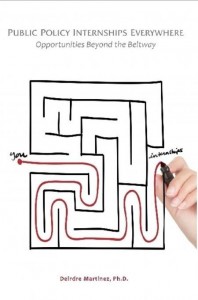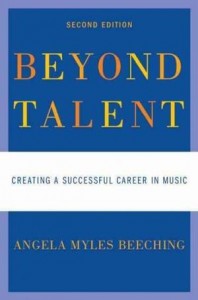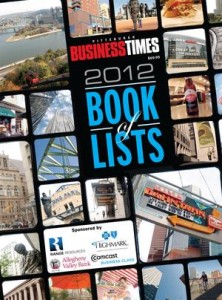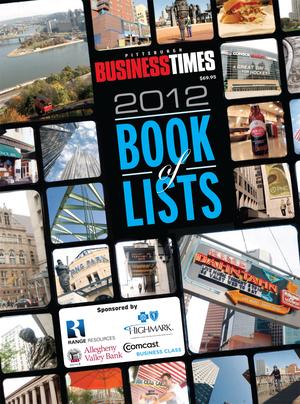Video by Jaclyn Chen W’12
Month: January 2012
RE-Who? REU! Research Experiences for Undergraduates
by Jamie Grant, C’98, GEd ’99
Considering research this summer, in the future, or for your career?
A research-based experience is one of the primary ways in which undergraduate students – even freshmen – can gain experience and knowledge beyond the classroom, most especially in the early years of their education. While many opportunities exist throughout the year – on campus with faculty, in labs, as part of nearby facilities like HUP and CHOP, among many other places – a few special programs exist in the summer months to help students gain specialized research experience.
The most notable of these programs, in my opinion, is the National Science Foundation-sponsored “Research Experience for Undergraduates” programs – NSF-REUs for short.
NSF-REU experiences offer a multitude of benefits to participating students, including the opportunity to:
- work in small, diverse yet focused groups with noted faculty on novel topics
- complete guided and independent research in areas including:
- economics
- engineering (a variety of fields available including nanotech, clean energy, biomedical, chemical and others)
- ethics and values studies
- mathematics
- physics
- sciences (biology, chemistry, physics, and others)
- social sciences (psychology, criminology, diversity and inclusion, social aspects of hurricanes, anthropology, sustainability, politics and political science, civil conflict management,
- technology (cyberinfrastructure, Department of Defense, etc.)
- and more!
- be published in well-respected publications and return to school with impressive projects to add to your resume
- receive a highly competitive salary (referred to as stipends, typically ranging from $3,000 – $5,000) and often also receive additional funding to cover housing and/or meals
- participate in fun activities organized by the site host
- and more (benefits vary by location)
Sites can be found right here in Philadelphia, at UPenn and Drexel, as well as across the country and around the world (there are even polar research sites in the Arctic!)
Click on the below link to see a list of topics and find your site within. Most students apply to more than one program, and individual requirements and deadlines (which can vary) are included on each program’s page.
http://www.nsf.gov/crssprgm/reu/index.jsp
And, if you’d like to speak with a Penn student who has done an REU or any other type of research, be sure to use the Penn Internship Network to search: http://www.vpul.upenn.edu/careerservices/undergrad/pin.html
Best of luck in your search for a research opportunity – it’s a surefire way to build a great resume and potentially launch a lifelong career!
By the Book: New Year, New Additions
by Michael DeAngelis, Information Resources Manager
It’s a new year! In fact, today is Chinese New Year, officially beginning the Year of the Dragon (Does that mean Drexel is going to suddenly rise to power?).
At Career Services, we took advantage of the brief amount of downtime while students were on winter break to order some new titles for our library. A small selection of our new editions are below – stop by the Career Services Library any time to give them a read! When classes are in session, our hours for the spring semester are, as always: M-W 9am-6pm and T-F 9am-5pm.
 Written by Deirdre Martinez, Fels lecturer and Director of the Penn In Washington program, Public Policy Internships Everywhere: Opportunities Beyond the Beltway is an indispensable guide for students who would like to find an internship in the public policy field but don’t know where to start. The book is written for college students who find Washington out of reach or who want to strengthen their resumes to prepare for the increasingly competitive internship market in Washington, and students who don’t particularly want to go to Washington but want to be part of the policy making process or politics in their hometown, at the state level, or even internationally. Each chapter describes how policy making happens at that level (in the political chapter there is an overview of how political campaigns work), identifies those opportunities available to high school and college students, includes examples and resources to help students identify the right internship, and provides advice on applications and tips on ensuring a successful internship.
Written by Deirdre Martinez, Fels lecturer and Director of the Penn In Washington program, Public Policy Internships Everywhere: Opportunities Beyond the Beltway is an indispensable guide for students who would like to find an internship in the public policy field but don’t know where to start. The book is written for college students who find Washington out of reach or who want to strengthen their resumes to prepare for the increasingly competitive internship market in Washington, and students who don’t particularly want to go to Washington but want to be part of the policy making process or politics in their hometown, at the state level, or even internationally. Each chapter describes how policy making happens at that level (in the political chapter there is an overview of how political campaigns work), identifies those opportunities available to high school and college students, includes examples and resources to help students identify the right internship, and provides advice on applications and tips on ensuring a successful internship.
 Contrary to the standard joke about how to get to Carnegie Hall, “making it” in music is not simply about practice, practice, practice. Today, over 200,000 people in the United States work as musicians. With competition for traditional employment opportunities for musicians becoming ever more heated, today’s musicians must know how the music industry works and how they can tailor their skills accordingly. How can musicians create their own professional paths? In Beyond Talent, veteran music career counselor Angela Myles Beeching offers up a comprehensive guide for musicians in search of work, demystifying the steps to success. Drawing on a wealth of real-life examples, the book untangles artist management and the recording industry and explains how to find and create performance opportunities. Guidance is also provided on grant writing and fundraising, day jobs, freelancing, and how to manage money, time, and stress. Straightforward and reader-friendly, Beyond Talent is filled with practical tips, examples, checklists, sample budgets, goal-setting exercises, and extensive resource listings. This essential handbook goes beyond the usual “how-to”; Beyond Talent helps musicians tackle the core questions about career goals, defining success, and imagining and then creating a meaningful life as a professional musician.
Contrary to the standard joke about how to get to Carnegie Hall, “making it” in music is not simply about practice, practice, practice. Today, over 200,000 people in the United States work as musicians. With competition for traditional employment opportunities for musicians becoming ever more heated, today’s musicians must know how the music industry works and how they can tailor their skills accordingly. How can musicians create their own professional paths? In Beyond Talent, veteran music career counselor Angela Myles Beeching offers up a comprehensive guide for musicians in search of work, demystifying the steps to success. Drawing on a wealth of real-life examples, the book untangles artist management and the recording industry and explains how to find and create performance opportunities. Guidance is also provided on grant writing and fundraising, day jobs, freelancing, and how to manage money, time, and stress. Straightforward and reader-friendly, Beyond Talent is filled with practical tips, examples, checklists, sample budgets, goal-setting exercises, and extensive resource listings. This essential handbook goes beyond the usual “how-to”; Beyond Talent helps musicians tackle the core questions about career goals, defining success, and imagining and then creating a meaningful life as a professional musician.
 These ever popular books are newly updated for 2012. Each market-specific edition is created by the local business journal to give you a perspective you can’t get anywhere else. A must for marketing, fund-raising or job search. The Career Services Library currently has the following regional editions on the shelf: Philadelphia, Washington DC, San Francisco, New Jersey, New England and Baltimore. We also currently receive monthly Business Times/Business Journal updates for each of these regions. Also newly arrived is the two volume Directory of New York State. These editions are excellent tools for researching geographic areas you are considering moving to.
These ever popular books are newly updated for 2012. Each market-specific edition is created by the local business journal to give you a perspective you can’t get anywhere else. A must for marketing, fund-raising or job search. The Career Services Library currently has the following regional editions on the shelf: Philadelphia, Washington DC, San Francisco, New Jersey, New England and Baltimore. We also currently receive monthly Business Times/Business Journal updates for each of these regions. Also newly arrived is the two volume Directory of New York State. These editions are excellent tools for researching geographic areas you are considering moving to.
 Finally, for students on the School of Design, we have updated our sample resume books for Architecture/Landscape Architecture and Historic Preservation/City & Regional Planning/MUSA/Real Estate. Using outstanding sample resumes submitted actual PennDesign students, these newly bound collections offer a great way to help those preparing for PennDesign Career Connection Day!
Finally, for students on the School of Design, we have updated our sample resume books for Architecture/Landscape Architecture and Historic Preservation/City & Regional Planning/MUSA/Real Estate. Using outstanding sample resumes submitted actual PennDesign students, these newly bound collections offer a great way to help those preparing for PennDesign Career Connection Day!
A Thank You Note
by Beth Olson
This long overdue thank-you note goes to the dozens of people who helped me complete two tasks simultaneously when I graduated from college. They taught me about their worlds of work and the many career options within it, and they helped me find a job.
Perhaps because he was one of my favorite professors or perhaps because I felt desperate watching my friends interview and land jobs, but when Dr. Saunders suggested that I simply contact interesting professionals to see if I could meet with them and ask them about their jobs, I jumped at the strategy. I asked family members and professors and friends and alumni and my former supervisors if they knew anyone working in the city where I hoped to live, and I made a list.
I started contacting people on the list, wondering if they would think I was crazy or pushy. And people started saying yes. I had a place to stay in my city of choice, so I went there and started meeting with people at their work or for lunch or coffee. My list quickly became a tangled tree, as many of the people I met gave me names from their networks of colleagues, saying “tell them I sent you.” I kept track of the degrees of separation, noting which person had referred me to whom. Sometimes the people I met forwarded my request on to their colleagues ahead of me, and I occasionally received calls from people I had not yet met! (When that happened, I rifled through my notes while on the phone, trying to figure out the connection quickly.)
I met many people, and I learned how to interview them. I began a life-long interest in the world of work, learning about different career paths and different organizational structures and styles. I learned what people did in their professional lives, and I learned how they were connected to one another—both to people within their own career fields and without. I gathered information about what it might be like to work in particular companies/organizations and which jobs someone right of college might get (if only there were job openings).
And then, eventually, two different people—entirely unrelated to one another professionally, from opposite ends of the networking web I’d created—both heard about a job opening (not within either person’s company). One person contacted the potential employer directly and told them about me. The other person contacted me to tell about the job possibility. When I applied, I don’t know if this networking intersection strengthened my candidacy in the employer’s eyes, but I landed the job.
Many jobs later, I find this still to be one of the best job-search strategies. I have learned about different careers, companies, opportunities, and I have found friends, eventual colleagues, and mentors. And I have a library of stories of the people I’ve met along the way.
(For tips on using this strategy, feel free to check out our website resources.)
For Those About To Apply…
by Peter Stokes
If you’re a junior or senior even considering applying to medical or dental school this summer, in order to be admitted in 2013, then make sure you come to one of our mandatory workshops for applicants that are coming up soon. For medical school, you have a choice of any of 5 different workshops. There is one workshop for dental applicants; if you really can’t make it, let us know in advance. The workshops are listed on the pre-graduate/professional school advising calendar, here: http://www.vpul.upenn.edu/careerservices/gradprof/calendar.html#medprograms
At the workshops we will explain the application process in detail. We will also explain the process that you go through with this office this spring. Basically, after you’ve come to a workshop, you’ll meet with a pre-health advisor for an in-depth conversation about the things you’ve done in the classroom and extra-curricularly, and you’ll also meet for a relatively formal interview with a faculty or staff member who has generously volunteered time to help with this process. That latter interview will serve as valuable practice for you; it is good preparation to have to talk about yourself and reflect on why you are pursuing this field and the choices you have made in preparing for it.
Before you meet with your pre-health advisor, we also require you to prepare some documents. We ask you to respond to a questionnaire, designed to help you reflect on your application and what your strengths are. We ask for an expanded resume, very much along the lines of what ultimately you will enter into your actual application. And we ask you to calculate your science GPA. All of these things are designed to help you submit a good, thoughtful application later. They also help us write an official, Penn HPAB (Health Professions Advisory Board) letter in support of your application, as is expected by medical and dental schools for those still in undergrad, which goes out along with the letters written by your teachers and mentors and so forth.
So in exchange for attending a workshop and two interviews, preparing some documents, and meeting some necessary deadlines, you get a detailed, official letter written to advocate for you, as well as extensive guidance and support in putting together your applications thoughtfully and well. We look forward to working with you!






